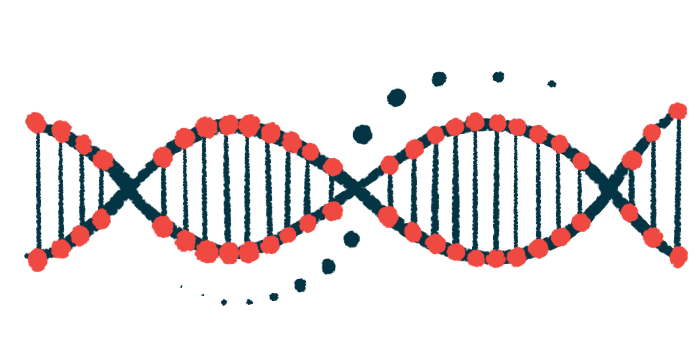Having PBC may increase risk of IBD, but not vice versa: Study
Researchers say results may help with simultaneous treatment
Written by |

Primary biliary cholangitis (PBC), a rare autoimmune liver disease, shares 10 genetic risk factors with inflammatory bowel disease (IBD), a group of inflammatory conditions of the intestines, a study showed. But while genetic variations predisposing people towards the development of PBC were found to increase the risk of IBD, that wasn’t the case the other way around.
“These findings shed light on the biological basis of [simultaneous occurrence of the two diseases], and have important implications for intervention and treatment targets of these two diseases simultaneously,” the researchers wrote.
The study, “Investigating shared genetic architecture between inflammatory bowel diseases and primary biliary cholangitis,” was published in JHEP Reports.
PBC is characterized by abnormal immune attacks against the bile ducts, the tubes that normally transport bile, a digestive fluid, from the liver to the intestines. This leads to progressive bile duct inflammation and damage that can ultimately cause liver failure.
IBD is an umbrella term for disorders that cause immune-mediated inflammation of the gastrointestinal tract, including Crohn’s disease and ulcerative colitis.
Genetic variations linked to risk
Although the causes of both conditions are incompletely understood, genetic variations are thought to have a major effect on the risk of developing these inflammatory disorders.
In addition, “the co-occurrence of IBD and primary biliary cholangitis has been increasingly observed, but the underlying relationship between these conditions remains unclear,” the researchers wrote.
The team, led by scientists in China, conducted a battery of analyses aiming to investigate whether there is overlap in genetic variations that increase the risk of either condition, based on data from prior studies in each one individually.
“Gaining a better understanding of the relationships between IBD and PBC would lead to a more effective diagnosis and safer interventions for both diseases individually and when they occur together,” the scientists wrote.
They drew on publicly available, pooled genetic data covering about 50,000 people of European ancestry for the analysis of IBD-predisposing genes, and about 24,500 people of European ancestry for PBC-predisposing genes.
They found evidence for strong genetic correlations between the two, identifying 10 single-nucleotide variations (SNPs) that were associated with an increased risk of both disorders. SNPs are changes in a single nucleotide, or the building blocks of DNA.
Notably, only one of these SNPs “had been previously reported for IBD and PBC,” the researchers wrote, with the other nine being newly identified as risk factors for both conditions.
“The results suggest that these SNPs may have a role in regulating shared pathways between IBD and PBC,” the team wrote.
Further analyses identified nine shared functional genes and shared enrichment of certain immune cells in disease-affected tissues between the two disorders.
Genetic pleiotropy at play
Finally, the researchers used a statistical method called Mendelian randomization, which uses genetic information to assess the cause-and-effect, or causal, relationship between a risk factor (in this case, genetic predisposition to either PBC or IBD) and an outcome (IBD or PBC, respectively).
The findings suggested that genetically predicted PBC is a risk factor for the development of IBD, but not the other way around.
That would seem to contradict previous studies that have suggested PBC may be more likely to develop in people with IBD, but the researchers said the discordant findings can be explained by a concept called genetic pleiotropy.
The basic idea is that sometimes genetic mutations can affect multiple traits at once, even though the traits themselves aren’t directly related. In other words, IBD patients may be at an increased risk of PBC because the genetic mutations that predispose them to IBD may also separately predispose them to PBC, not because IBD itself triggers PBC to develop.
While the team accounted for pleiotropy in their analyses, previous studies did not.
“Our results indicated that PBC was significantly associated with elevated risks of IBD, but not vice versa,” the scientists wrote. “Thus, the previously reported causality of IBD on PBC might be biased by pleiotropy.”
Given that the genetic data came from people of European descent, future studies are needed to see if these findings apply in other populations, the researchers said. Further research is also needed to assess the specific biological functions of the genes identified in the study, the team noted.


